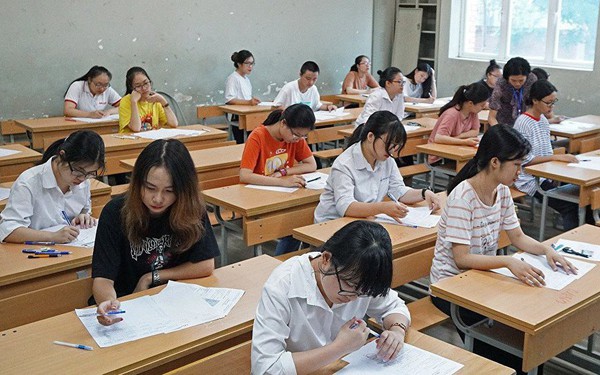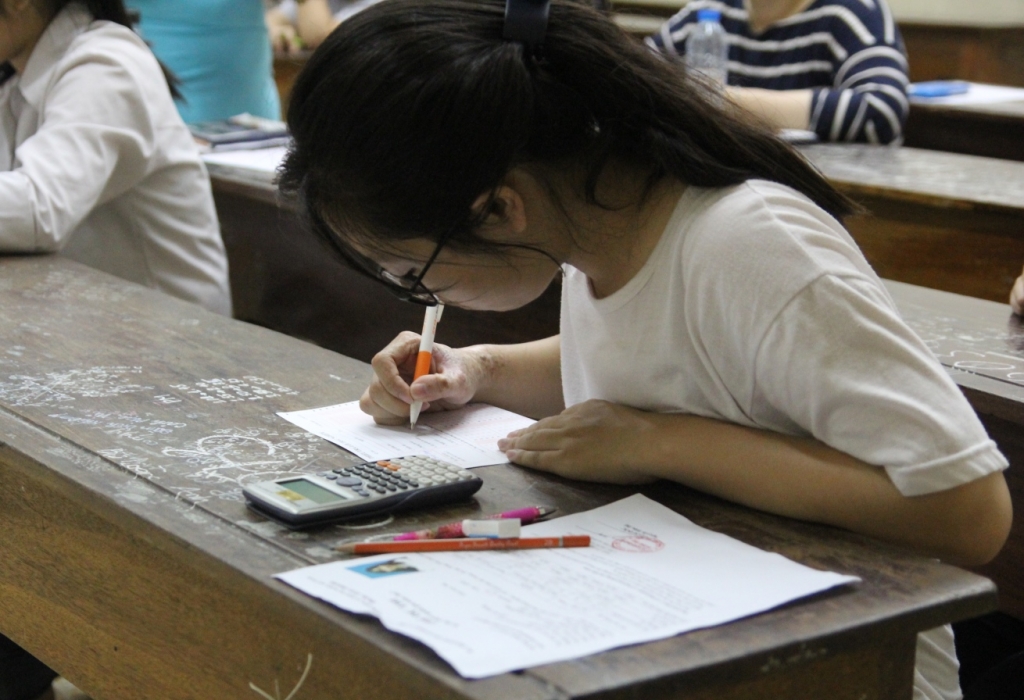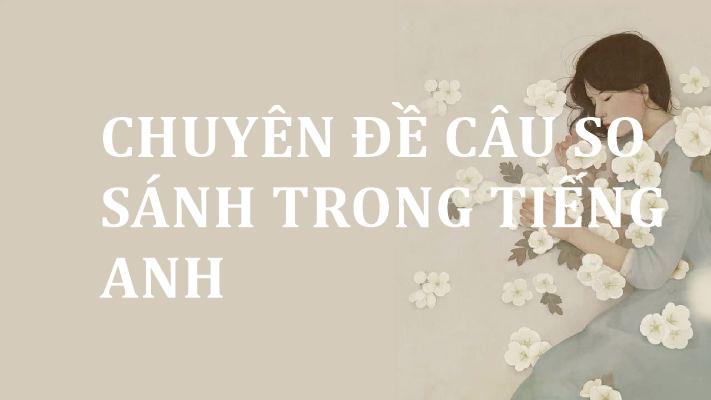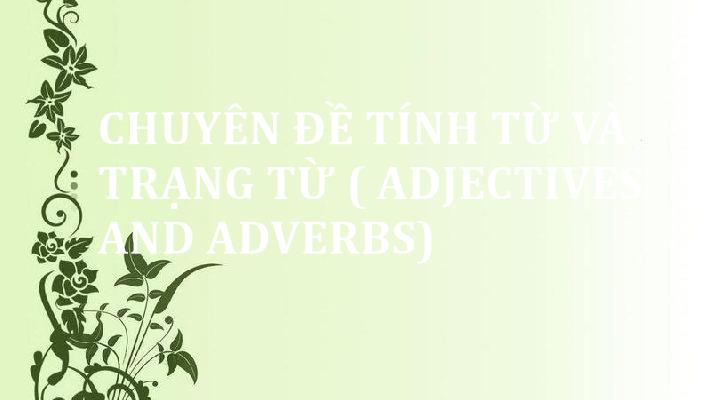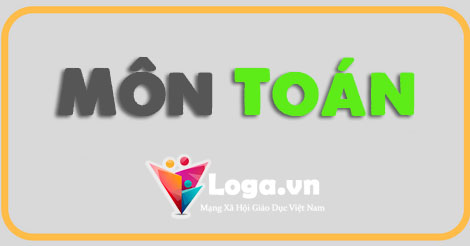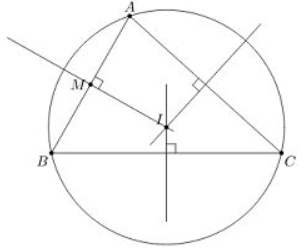Từ vựng các chủ đề chắc chắn thi & bám sát Chương trình học THPT
Topic: EDUCATION AND LEARNING
Đây là những bài mình thấy là có liên quan tới chủ đề này
Unit 8: New ways to learn ( Tiếng anh 10)
Unit 7: Further education ( Tiếng anh 11)
Unit 10: Lifelong learning ( Tiếng anh 12)
I. Vocab
1. Higher education= Tertiary education= Futher education: giáo dục đại học trở lên ( thường cho các bậc trên đại học)
2. Degree(n): bằng cấp ( a course of study at a college or university, or the qualification given to a student after he or she has completed his or her studies)
N/Adj+ degree: college,university,first, ordinary, undergraduate, master’s, higher, research, Bachelor’s..
V+ degree:take, do, have, hold, receive,get,obtain,gain.
Degree+ in. Ex: a degree in law: bằng luật
3. Diploma(n): chứng chỉ, văn bằng ( a certificate awarded by an educational establishment to show that someone has successfully completed a course of study)
4. Qualification(n): bằng cấp ( an official record showing that you have finished a training course or have the necessary skills..)
Adj+ qualification: formal, basic, further, appropriate, necessary, vocational, academic, medical, teaching, technical..
V+ qualification:acquire, gain, obtain, have, hold
5. Certificate (n): giấy chứng nhận ( an official document attesting certain fact, in particular). Ex: School certificate( học bạ), Birth certificate ( giấy khai sinh )
6. Freshman(n): sinh viên năm nhất
7. Sophomore(n): sinh viên năm hai
8. Junior(n): sinh viên năm ba
9. Senior(n): sinh viên năm bốn ( hoặc hơn)
10. Undergraduate(n): sinh viên chưa tốt nghiệp
11. Postgraduate(n): nghiên cứu sinh ( đang học sau đại học)
12. Cram(n): học luyện thi, học nhồi nhét để thi
13. Mock exam/ examination: kì thi thử
14. Entrance exam/ examination: kì thi Đại học
15. National exam/ examination: kì thi tốt nghiệp
16. Eligible (a): đủ tư cách
17. Gap year: 12 tháng bạn quyết định nghỉ trong một quá trình học tập và làm việc, cho phép bạn làm những điều khác biệt so với thường ngày: đi du lịch, tình nguyện...
18. Distance learning/ education(n): học từ xa ( thường là qua Internet)
19. Face to face classes(n): lớp học truyền thống
20. Tuition fees: học phí
Một số cụm từ khác
1. Do/take/sit an exam: tham gia vào kì thi
2. Take notes= write down= jot down: ghi chép vắn tắt
3. Be in two minds about: phân vân, lưỡng lự về điều gì
4. Hit the books ~ have a lesson: học bài
5. Bury yourself in your books: dành tối đa thời gian để học
6. Eager beaver(n): người tham công tiếc việc
7. Know the subject inside out: biết vấn đề một cách tường tận
8. With flying colors: thi đậu với điểm số cao
9. Take a year out : dành 1 năm cho công việc hoặc đi du lịch trước khi bắt đầu việc học.
10. To consult one’s pillow : vắt tay lên trán mà suy nghĩ
11. Meet the deadline: hoàn thành đúng hạn
12. Work your way through university: làm thêm để có thu nhập hỗ trợ cho việc học
13. Play truant: trốn học
14. Fall behind with your studies: tiến bộ chậm hơn những học sinh khác
15. Learn something by heart: học thuộc lòng
16. Give sb a piece of one’ mind: thẳng thắn phê bình ai
17. Pull one’s socks up: cố gắng nỗ lực nhiều hơn
18. Stick one’s neck out: đánh liều để đòi một cái gì
II. Exercises
Exercise 1: Mark the letter A, B, C, or D on your answer sheet to indicate the correct answer to each of the following questions.
- My Dad wants me to go university, but I’m in ____ minds about it.
|
|
|
|
- Australians and New Zealanders often have a/an_____ year before going to college or after finishing high school to travel overseas independently.
|
|
|
|
- Going to university is expensive because in addition to the tuition_____, there are expenses for accommodation, books, living costs,...
|
|
|
|
- I would prefer to go to university and do a _____ in Interbational Studies, rather than start work.
|
|
|
|
- At the end of the training course, each participant was presented with a __________ of completion.
|
|
|
|
- _______ learning is more flexible than traditional education.
|
|
|
|
- _______ education is normally taken to include undergarduate and postgraduate education, as well as vocational education and training.
|
|
|
|
- He’ll have to ______ and work harder or he’ll fail the exam.
|
|
|
|
- You should ______until you know the subject inside out.
|
|
|
|
- She had to ____ her First Certificate Exam three times.
|
|
|
|
Key:
|
1 |
B. Be in two minds about: phân vân, lưỡng lự về điều gì |
|
2 |
A. Gap year: 12 tháng bạn quyết định nghỉ trong một quá trình học tập và làm việc, cho phép bạn làm những điều khác biệt so với thường ngày: đi du lịch, tình nguyện... |
|
3 |
D. tuition fees: học phí |
|
4 |
C. Do a degree/ diploma: học lấy bằng.... |
|
5 |
B. certificate: chứng chỉ hoàn thành khóa học |
|
6 |
B. Distance learning: học từ xa |
|
7 |
A=B. higher education= tertiary education: giáo dục đại học |
|
8 |
A. pull one’s socks up: cố gắng nỗ lực nhiều hơn |
|
9 |
A. Bury yourself in your books: dành tối đa thời gian để học |
|
10 |
B. take/do/sit an exam: tham gia kì thi |
Exercise 2: ( Đề minh họa THPT Quốc Gia 2018)
Read the following passage and mark the letter A, B, C, or D on your answer sheet to indicate the correct answer to each of the questions from 35 to 42.
The system of higher education had its origin in Europe in the Middle Ages, when the first universities were established. In modern times, the nature of higher education around the world, to some extent, has been determined by the models of influential countries such as France and Germany.
Both France and Germany have systems of higher education that are basically administered by state agencies. Entrance requirements for students are also similar in both countries. In France, an examination called the baccalauréat is given at the end of secondary education. Higher education in France is free and open to all students who have passed this baccalauréat. Success in this examination allows students to continue their higher education for another three or four years until they have attained the first university degree called a licence in France.
Basic differences, however, distinguish these two countries’ systems. French educational districts, called académies, are under the direction of a rector, an appointee of the national government who is also in charge of universities in each district. The uniformity in curriculum throughout the country leaves each university with little to distinguish itself. Hence, many students prefer to go to Paris, where there are better accommodations and more cultural amenities for them. Another difference is the existence in France of prestigious higher educational institutions known as grandes écoles, which provide advanced professional and technical training. Most of these schools are not affiliated with the universities, although they too recruit their students by giving competitive examinations to candidates. The grandes écoles provide rigorous training in all branches of applied science and technology, and their diplomas have a somewhat higher standing than the ordinary licence.
In Germany, the regional universities have autonomy in determining their curriculum under the direction of rectors elected from within. Students in Germany change universities according to their interests and the strengths of each university. In fact, it is a custom for students to attend two, three, or even four different universities in the course of their undergraduate studies, and the majority of professors at a particular university may have taught in four or five others. This high degree of mobility means that schemes of study and examination are marked by a freedom and individuality unknown in France.
France and Germany have greatly influenced higher education systems around the world. The French, either through colonial influence or the work of missionaries, introduced many aspects of their system in other countries. The German were the first to stress the importance of universities as research facilities, and they also created a sense of them as emblems of a national mind.
(Source: https://britannicalearn.com)
Question 35. What does the passage mainly discuss?
A. The nature of education around the world in modern times
B. Systems of higher education in France and Germany
C. The origin of higher education system in Europe
D. The influence of France and Germany on educational systems of other countries
Question 36. The word “uniformity” in paragraph 3 is closest in meaning to ______.
A. proximity B. discrepancy C. similarity D. uniqueness
Question 37. The word “their” in paragraph 3 refers to ______.
A. schools B. universities C. examinations D. branches
Question 38. Which of the following about grandes écoles in France is NOT stated in paragraph 3?
A. Most of them have no connection with universities.
B. They have a reputation for advanced professional and technical training.
C. Their degrees are better recognized than those provided by universities.
D. They offer better accommodations and facilities than universities.
Question 39. According to the passage, a regional university rector in Germany is elected by ______.
A. the staff of the university B. the national government officials
C. the regional government officials D. the staff of other universities
Question 40. According to paragraph 4, what makes it possible for students in Germany to attend different universities during their undergraduate studies?
A. The university staff have become far more mobile and occupied.
B. The university’s training programs offer greater flexibility and freedom of choice.
C. University tuition fees are kept at an affordable level for all students.
D. Entry requirements to universities in Germany are made less demanding.
Question 41. The word “emblems” in the final paragraph is closest in meaning to ______.
A. representatives B. directions C. structures D. delegates
Question 42. Which of the following can be inferred from the passage?
A. Studying in France and Germany is a good choice for people of all ages and nationalities.
B. It normally takes longer to complete a university course in France than in Germany.
C. Universities in Germany can govern themselves more effectively than those in France.
D. The level of decentralization of higher education is greater in Germany than in France.
Key:
Question 35.
Kiến thức: Đọc hiểu
Giải thích:
Đoạn văn chủ yếu thảo luận về điều gì?
A. Bản chất của giáo dục trên toàn thế giới thời hiện đại
B. Hệ thống giáo dục đại học ở Pháp và Đức
C. Nguồn gốc của hệ thống giáo dục đại học ở Châu Âu
D. Ảnh hưởng của Pháp và Đức đối với hệ thống giáo dục của các nước khác
Đáp án: B
Question 36.
Kiến thức: Đọc hiểu, từ vựng
Giải thích:
Từ “uniformity” ở đoạn 3 gần nghĩa với _____
uniformity (n): sự thống nhất
proximity (n): trạng thái gần
discrepancy (n): sự khác biệt
similarity (n): sự tương đồng
uniqueness (n): sự độc đáo
=> uniformity= similarity
Dẫn chứng: The uniformity in curriculum throughout the country leaves each university with little to distinguish itself. Hence, many students prefer to go to Paris, where there are better accommodations and more cultural amenities for them.
Đáp án: C
Question 37.
Kiến thức: Đọc hiểu
Giải thích:
Từ "their" trong đoạn 3 đề cập đến._______
A. trường học
B. trường đại học
C. kiểm tra
D. chi nhánh
Dẫn chứng: Most of these schools are not affiliated with the universities, although they too recruit their students by giving competitive examinations to candidates.
Đáp án: A
Question 38.
Kiến thức: Đọc hiểu
Giải thích:
Câu nào sau đây về học vị tú tài ở Pháp KHÔNG được nêu trong đoạn 3?
A. Hầu hết trong số họ không có liên kết với các trường đại học.
B. Họ có tiếng về đào tạo chuyên nghiệp và kỹ thuật tiên tiến.
C. Bằng cấp của họ được công nhận tốt hơn các bằng cấp của các trường đại học.
D. Họ cung cấp chỗ ở tốt hơn và tiện nghi hơn so với các trường đại học.
Dẫn chứng: Another difference is the existence in France of prestigious higher educational institutions known as grandes écoles, which provide advanced professional and technical training. Most of these schools are not affiliated with the universities, although they too recruit their students by giving competitive examinations to candidates. The grandes écoles provide rigorous training in all branches of applied science and technology, and their diplomas have a somewhat higher standing than the ordinary licence.
Đáp án: D
Question 39.
Kiến thức: Đọc hiểu
Giải thích:
Theo đoạn văn, một hiệu trưởng trường đại học khu vực ở Đức được bầu bởi______
A. các nhân viên của trường đại học
B. các quan chức chính phủ quốc gia
C. các quan chức chính phủ khu vực
D. nhân viên của các trường đại học khác
Dẫn chứng: In Germany, the regional universities have autonomy in determining their curriculum under the direction of rectors elected from within.
Đáp án: C
Question 40.
Kiến thức: Đọc hiểu
Giải thích:
Theo đoạn 4, điều gì làm cho sinh viên Đức có thể theo học các trường đại học khác nhau trong thời gian học đại học?
A. Đội ngũ trong trường đại học đã trở nên linh động và bận rộn hơn.
B. Các chương trình đào tạo của trường đại học mang lại tính linh hoạt và tự do lựa chọn cao hơn.
C. Học phí học đại học được giữ ở mức hợp lý cho tất cả học sinh.
D. Yêu cầu nhập học đối với các trường đại học ở Đức không đòi hỏi nhiều.
Dẫn chứng: his high degree of mobility means that schemes of study and examination are marked by a freedom and individuality unknown in France.
Đáp án: B
Question 41.
Kiến thức: Đọc hiểu, từ vựng
Giải thích:
Từ "emblem" trong đoạn cuối cùng có nghĩa gần nhất với _____
Emblem (n): biểu tương, tượng trưng
A. Các đại diện
B. Các hướng
C. Cấu trúc
D. Các đại biểu
emblem = representative
Dẫn chứng: The German were the first to stress the importance of universities as research facilities, and they also created a sense of them as emblems of a national mind.
Đáp án: A
Question 42.
Kiến thức: Đọc hiểu
Giải thích:
Câu nào sau đây có thể suy ra từ đoạn văn?
A. Học ở Pháp và Đức là sự lựa chọn tốt cho mọi người ở mọi lứa tuổi và quốc tịch.
B. Thông thường phải mất nhiều thời gian để hoàn thành một khóa học đại học ở Pháp hơn là ở Đức.
C. Các trường đại học ở Đức có thể quản lý hiệu quả hơn các trường đại học ở Pháp.
D. Mức độ phân cấp giáo dục đại học ở Đức lớn hơn so với ở Pháp.
Đáp án: A

